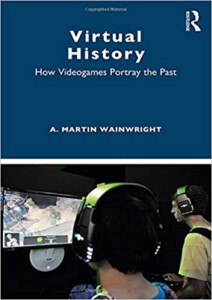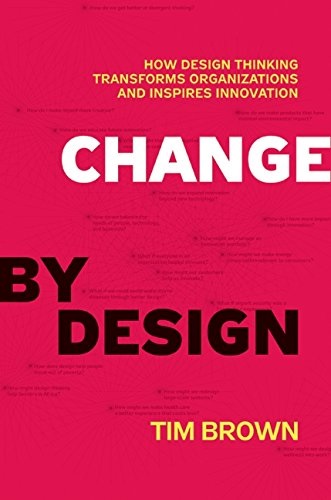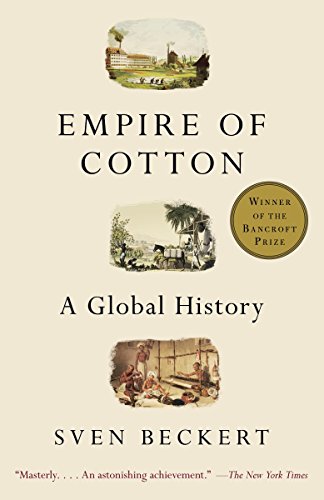Curriculum and Programming
The curriculum for the Business and Economic History program at PLU is administered by the History department, and taught by the Benson Family Chair. Currently, the program consists of six courses taught on a rotating basis, providing students with an introduction to major themes in U.S. Business and Economic history, and providing greater depth in the fields of business ethics, human centered design, and the history of technology. At least two courses offered each year also support the Innovation Studies program.
PLU History majors and minors are encouraged to emphasize business and economic history in their History programs, and to structure significant research projects around these themes (for example, in History 301 or the capstone course). History majors are also encouraged to minor in Business, Innovation Studies, or Economics if the curriculum fits their career goals.
Most History (Hist) courses satisfy the ES requirement within the PLU General Education Program. The one exception to this is Hist 121: History in Video Games, which provides Creative Expression (“CX”) GenEd credit.
Below is the current course list, a sample reading, and when the course is offered:
Hist 121: History in Video Games - CX
 Surveys the social and cultural impact of video games in American history, including how historical figures and events have been represented in popular games during the past 40 years. Combines the study of visual media theories and the creative process with social and political issues in games, including ethical action, violence, gender, ethnicity, religion, and environmental concerns. In a final project, teams design and prototype their own historical video game concept. (4) [Spring 2026]
Surveys the social and cultural impact of video games in American history, including how historical figures and events have been represented in popular games during the past 40 years. Combines the study of visual media theories and the creative process with social and political issues in games, including ethical action, violence, gender, ethnicity, religion, and environmental concerns. In a final project, teams design and prototype their own historical video game concept. (4) [Spring 2026]
Note: This course carries an “CX” GenEd attribute and satisfies requirements in Innovation Studies and History. (Previous GenEd designation was “AR”.)
Hist 247: U.S. Capitalism: From Railroads to Netflix - ES
 Surveys the history of American business and the economy from the rise of big business and labor unions after the American Civil War through the era of globalization. Topics include technological change, government regulation, business organization, economic thought, business ethics, the role of the entrepreneur, and the place of women and minorities in American business society. (4) [Spring 2025]
Surveys the history of American business and the economy from the rise of big business and labor unions after the American Civil War through the era of globalization. Topics include technological change, government regulation, business organization, economic thought, business ethics, the role of the entrepreneur, and the place of women and minorities in American business society. (4) [Spring 2025]
HIST 248: Innovation, Ethics, and Society – ES
 An interdisciplinary course on the history of innovation in the American economy, and the ethical considerations that arise as a result of new products and initiatives, disruptive technologies, globalization, and cultural change.
An interdisciplinary course on the history of innovation in the American economy, and the ethical considerations that arise as a result of new products and initiatives, disruptive technologies, globalization, and cultural change.
Satisfies a foundation requirement in the Innovation Studies minor; also a History elective. (4) [Fall 2025, Fall 2027]
HIST 346: History of Innovation and Technology - ES
 Surveys the role of innovation and technology in Western societies from the industrial revolution to the computer age. Examines the way that technology has developed over time, and how those changes have affected business and the economies of Europe and the United States. Major themes include the development of forms of transportation, communication, industrial production, power systems, and computer technologies. Satisfies a foundation requirement in the Innovation Studies minor; also a History elective. (4) [Spring 2027]
Surveys the role of innovation and technology in Western societies from the industrial revolution to the computer age. Examines the way that technology has developed over time, and how those changes have affected business and the economies of Europe and the United States. Major themes include the development of forms of transportation, communication, industrial production, power systems, and computer technologies. Satisfies a foundation requirement in the Innovation Studies minor; also a History elective. (4) [Spring 2027]
Inov 350: Innovation Seminar
 A hands-on seminar for Innovation Studies minors designed to expose students to the conceptual, ethical, and logistic issues involved in developing an innovative idea, process, product, or campaign.
A hands-on seminar for Innovation Studies minors designed to expose students to the conceptual, ethical, and logistic issues involved in developing an innovative idea, process, product, or campaign.
Students will form teams; analyze artistic, technological, and entrepreneurial factors; consider issues such as feasibility and market timing; and then develop and present an “idea proposal” during the semester that will have written and visual components. A final presentation is required.
Receives INOV credits (4), which satisfy upper division requirement and completes the Innovation Studies minor. (Not a HIST class.) [Spring 2025, Spring 2027]
HIST 499: Travel, Technology, and Business
 Travel is an ever-present characteristic of the human experience. From ancient times to the present, business people, merchants, missionaries, diplomats, pilgrims, and others have wandered the world seeking new experiences and opportunities; sometimes broadening human understanding and connecting disparate groups, and other times engaging in violence, theft, or subjugation. At the root of it all, however, is innovation and travel—deliberate human movement on foot, horseback, or ship; by car, train, or airplane—even rockets into space and virtual travel via the Internet.
Travel is an ever-present characteristic of the human experience. From ancient times to the present, business people, merchants, missionaries, diplomats, pilgrims, and others have wandered the world seeking new experiences and opportunities; sometimes broadening human understanding and connecting disparate groups, and other times engaging in violence, theft, or subjugation. At the root of it all, however, is innovation and travel—deliberate human movement on foot, horseback, or ship; by car, train, or airplane—even rockets into space and virtual travel via the Internet.
This history capstone asks students to consider the fruitful intersections among travel, technology, and business in global history, in order to understand and comment on the powerful contending forces in our world and to relate them to individual experience. The seminar especially welcomes students interested in business history, technology, and innovation. (4) [Spring 2027]
Innovation Studies at PLU
PLU is the excited to promote a 20-credit interdisciplinary minor in Innovation Studies.
Innovation Studies (INOV) is a broadly inclusive program featuring coursework in History, Economics, Business, and Art & Design, as well as potential electives from ten academic units, including Computer Science, Philosophy, Psychology, Communication and Theatre, English, Politics & Government, History, Economics, Art & Design, and Business. The Benson program in Business and Economic History co-sponsored the design process for Innovation Studies and supports its curriculum.
For more information or to declare your minor, visit Innovation Studies.


